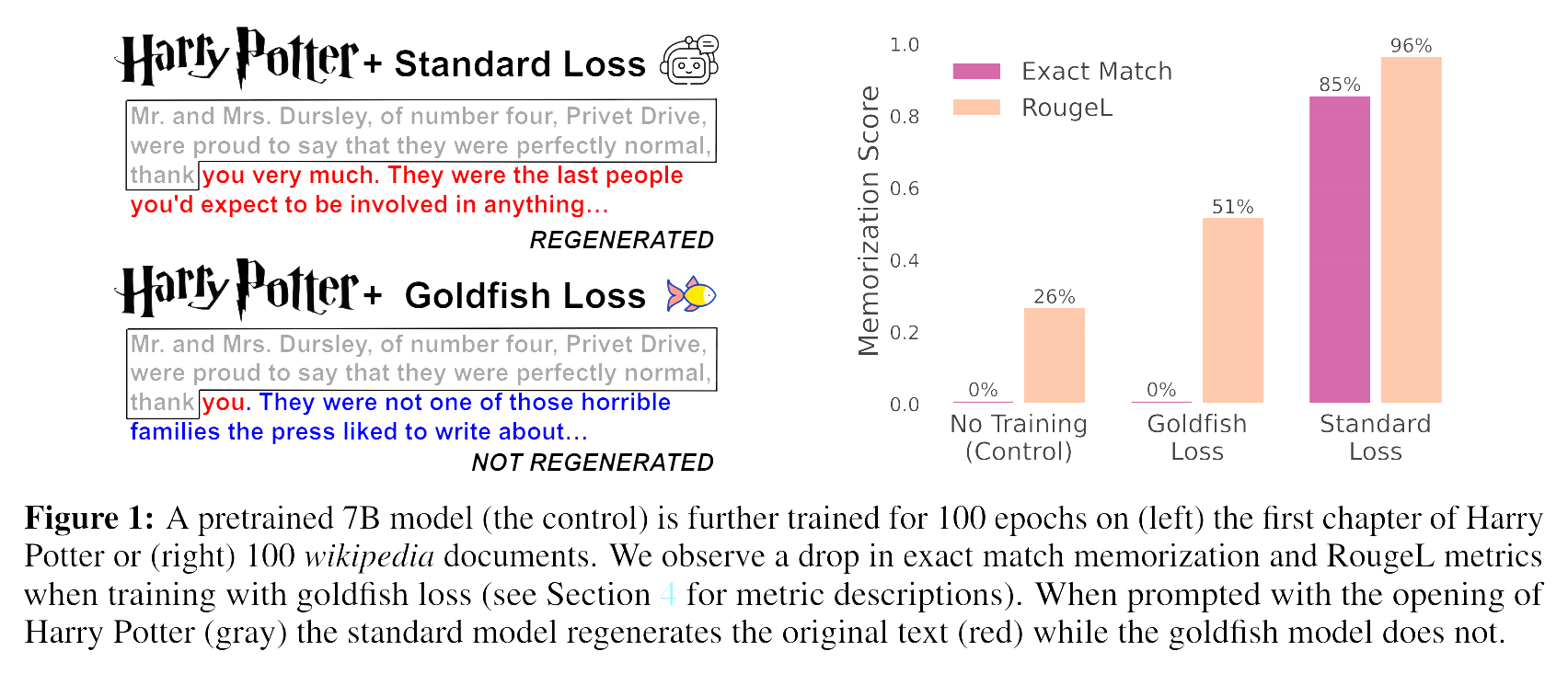
How do you train a Large Language Model without it memorizing training data?
This paper proposes a technique called Goldfish Loss that is now used to mitigate the risk of LLMs memorizing copyrighted or private training data.
In Short:
The paper introduces Goldfish Loss, a method where the model does not compute the loss on every token but excludes (e.g.) 1 in 4 tokens from loss computation. This makes it difficult for the model to memorize the training data.
How it Works:
Goldfish Loss works by omitting a portion of tokens from loss computation during training. When the model encounters these excluded tokens at test time, it has to guess, reducing its ability to reproduce training samples exactly.
Effectiveness:
In standard training on Wikipedia articles, about 85% of them get perfectly memorized after 100 updates. With Goldfish Loss, the model usually diverges from the training data within the first 5 tokens it generates.
Trade-off:
The model learns slower because it does not get credit for the dropped tokens. Training on N tokens with Goldfish Loss is equivalent to standard training on 0.75N tokens.
Benefits:
Goldfish training is scalable and helps avoid the need for unlearning methods, which are often not scalable. This makes it possible to prevent the memorization of copyrighted text/code during training.
Results:
The paper validates Goldfish Loss by pre-training a model for 200B tokens, showing that it effectively prevents memorization without significantly compromising the learning rate.
Details in the Paper:
- Explanation of the Goldfish Loss technique
- Comparison of memorization rates with standard training
- Analysis of the trade-offs between learning rate and memorization prevention
- Validation experiments and results
Ready to start building?
Check out the Quickstart tutorial, or build amazing apps with a free trial of Weaviate Cloud (WCD).
Don't want to miss another blog post?
Sign up for our bi-weekly newsletter to stay updated!
By submitting, I agree to the Terms of Service and Privacy Policy.
